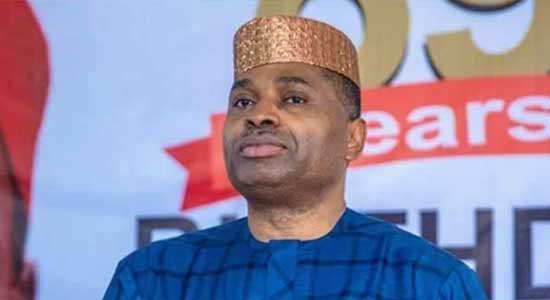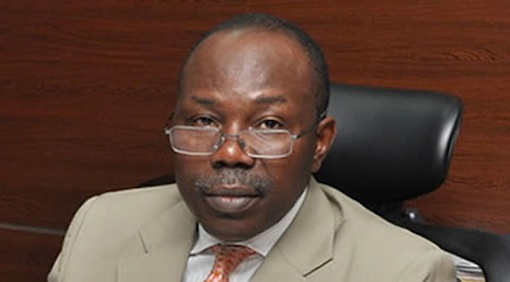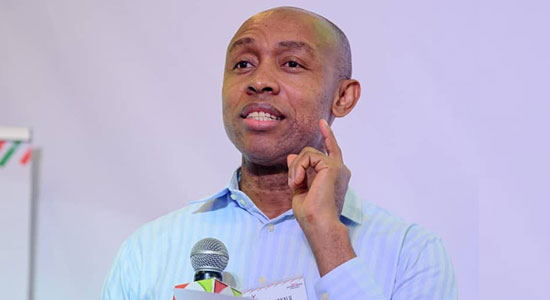Electoral Act 2022 And Electronic Transmission Of Results

By Kenneth Okonkwo
In the explanatory memorandum to the Electoral Act (EA), 2022, the intendment of the Legislature for the enactment of the Electoral Act, 2022 was made clear. It provides among other things “to make provisions for the … use of card readers and other technology devices in elections”. Recall that after the initial draft of the Electoral Act was passed by the National Assembly, President Muhammadu Buhari refused his assent because of the omission of electronic transfer of results in the Act.
This refusal stemmed from the insistence by the generality of the citizens of Nigeria that the Electoral Act will be worthless if the provision for electronic transfer of results were to be eliminated. The refusal of the assent of the President was strengthened by the assertion of the Independent National Electoral Commission that they will require the provision to ensure free, fair, and credible elections, because it will enable them checkmate the nefarious activities of the election riggers during the collation of election results. (Please see INEC Maunual for Election). The National Assembly was compelled to amend the Bill to include the electronic transmission and transfer of election results from the polling units on election day before the President signed the Bill that turned it into an Act.
The historic reason for the collective will of the Nigerian people in their insistence of the electronic transmission of results is not far fetched. From 1960, the greatest problem of Nigeria has been the inability of the country to conduct free, fair and credible elections leading to blatant rigging and manipulation of election results. The truncation of the First Republic had its roots in the violence that greeted the rigging of the elections in the South West of Nigeria. The truncation of the Second Republic also had its roots again in the violence that followed the rigging of the election in the South-West. The Third Republic was aborted before it was born. Now we are in the Fourth Republic and the only assurance that Nigeria will survive is the entrenchment of the will of the people, continually manifested in free, fair and credible elections.
The major problem with earlier elections was not mainly that citizens were prevented from voting but that their votes never counted because during collation of results, figures were allocated to preferred establishment candidates that eliminated, unjustly, the popular candidates chosen by the citizens. The foundation for this allocation of results start from the polling units. This is done through stuffing of the ballot boxes with unlawful votes by party agents in collusion with INEC officials, snatching of ballot boxes to fill the box later with fake votes and turn them in at the collation centre, destruction of the ballot boxes and papers in opponents’ strongholds. Writing fake results on the hard copy of election results at the polling units, inflating and ticking fictitious names in the manual register of voters to exaggerate the number of the people that came to vote so as to justify the allocated votes.
What the collation officers simply do at the collation centres, after the manipulations that occur at the polling units, is to use the manual register of voters as a guide to allocate the quantum of votes needed by their preferred candidates to win the election and announce the candidates subsequently as winners. The mischief that the EA, 2022 intends to solve therefore is the elimination of the evils of manipulation of the manual register of voters with fictitious names, and allocation of votes, starting from the polling units to the collation centres. This, the electoral body, INEC started to eliminate with the introduction of the card reader, to capture, electronically, the number of accredited voters, in order to ensure that only the registered voters, who are identifiable, are allowed to vote and their number is prevented from being inflated. This approach suffered an initial set back because of the judicial pronouncement that over voting should be calculated based on the manual register, not based on the card reader and led to the agitation that over voting should be based on the number of accredited voters in the card reader, and this was factored in during the enactment of the EA, 2022. Today, the EA has effectively outlawed the sole use of manual accreditation of voters and manual collation of results at collation centres for the computation of election results, declaration and return of any candidate as winner.
The position of the law as provided by the EA in regard to the issue of the use of card readers and other technology devices to ensure the electronic accreditation of voters and smooth transmission of election results from the polling units, in order to avoid the manipulation of our results and ensure sanity in our elections, is very clear. Section 60(5) of the EA states explicitly and compulsorily that, “The presiding officer shall transfer the result including total number of accredited voters and the results of the ballot in a manner prescribed by the commission”. INEC voluntarily determined that the transmission will be through the Bimodal Voter Accreditation System (BVAS) machine to the Collation System, which has been variously described by the Act and INEC as the INEC Data base or Server or the National Electronic Register of Election Results. This is in Clause 38(i)(ii) of INEC Regulations and Guidelines for the Conduct of Election, which states, “On completion of all the Polling Unit voting and results procedures, the Presiding Officer shall electronically transmit or transfer the result of the Polling Unit, direct to the collation system as prescribed by the Commission. Use the BVAS to upload a scanned copy of the EC8A to the INEC Result Viewing Portal (IRev).” It’s therefore submitted that, INEC must transmit and transfer the number of accredited voters and results from the polling units on election day into its electronic device, by whatever name called, used for storing and processing information, in order to secure it and prevent it from being tampered with and which can be accessible for use during collation.
The EA, 2022 and INEC Regulations and Guidelines warned that election results cannot be collated, and a winner announced and returned, unless the Collation Officer, ascertains that the number of accredited voters agrees with the number recorded and transmitted through the BVAS and votes scored by Political Parties on the result sheet are correct and agree with the results electronically transmitted or transferred directly from the Polling Unit into the collation system. Section 64(4)(a)(b) of the Electoral Act states “A collation officer or returning officer at an election shall collate and announce the result of an election, subject to his or her verification and confirmation that the number of accredited voters stated on the collated result are correct and consistent with the number of accredited voters recorded and transmitted directly from polling units” and “the votes stated on the collated result are correct and consistent with the votes or results recorded and transmitted directly from polling units”.
The Act made it clear that where any collated result at any level is incorrect or disputed, the Collation Officer or Returning Officer shall use the number of accredited voters recorded and transmitted directly from polling units and the votes or results recorded and transmitted directly from polling units to re-collate and announce a new result of the election. See Section 65(5)(6)(7)(8) (9) of the EA, 2022. Note that INEC reproduced these sections in its rules and regulations. Clause 48(a)(b) states that “An election result shall only be collated if the Collation Officer ascertains that the number of accredited voters agrees with the number recorded in the BVAS and votes scored by the Political Parties on the result sheet is correct and agrees with the result electronically transmitted or transferred directly from the Polling Unit” and “If a Collation or Returning Officer determines that a result from a lower level of collation is not correct, he/she shall use the result electronically transmitted or transferred directly from that lower level to collate and announce the result.”
The Supreme Court affirmed this position in the Oyetola v Adeleke, Osun State Governorship election case, where it held that “As their names depict, the Collation System and the INEC Result Viewing Portal are part of the election process and play particular roles in that process. The Collation System is made of the centres where results are collated at various stages of the election. So the polling units results transmitted to the collation system provides the relevant collation officer the means to verify a polling unit result as the need arises for the purpose of collation. The results transmitted to the Result Viewing Portal is to give the public at large the opportunity to view the polling unit results on the election day.” (See Page 24 of the lead judgement as delivered by Emmanuel Akomaye, JSC). The Court cited Clause 38(i)(ii) of INEC’S Regulations and Guidelines for the Conduct of Elections, 2022 to buttress this point. This Clause was made pursuant to the power given to INEC in Section 60(5) of the Electoral Act, 2022. These laws have practically outlawed sole manual collation of results that have not been verified by comparison with the electronically transmitted results into the Collation System from the polling units.
It’s therefore submitted that any election conducted and concluded, and collation of results made manually, without being compared with the information in the electronically transmitted results into the Collation System from the polling units, to ensure their correctness, is in substantial non-compliance with the Electoral Act and INEC Regulations and Guidelines for the Conduct of Elections, 2022 and a breach of the election process, since they are mandatory provisions of the law enacted to secure the integrity of our elections. Their non-compliance should certainly void the election. To hold otherwise is to destroy every technological improvement we have made in our elections.



